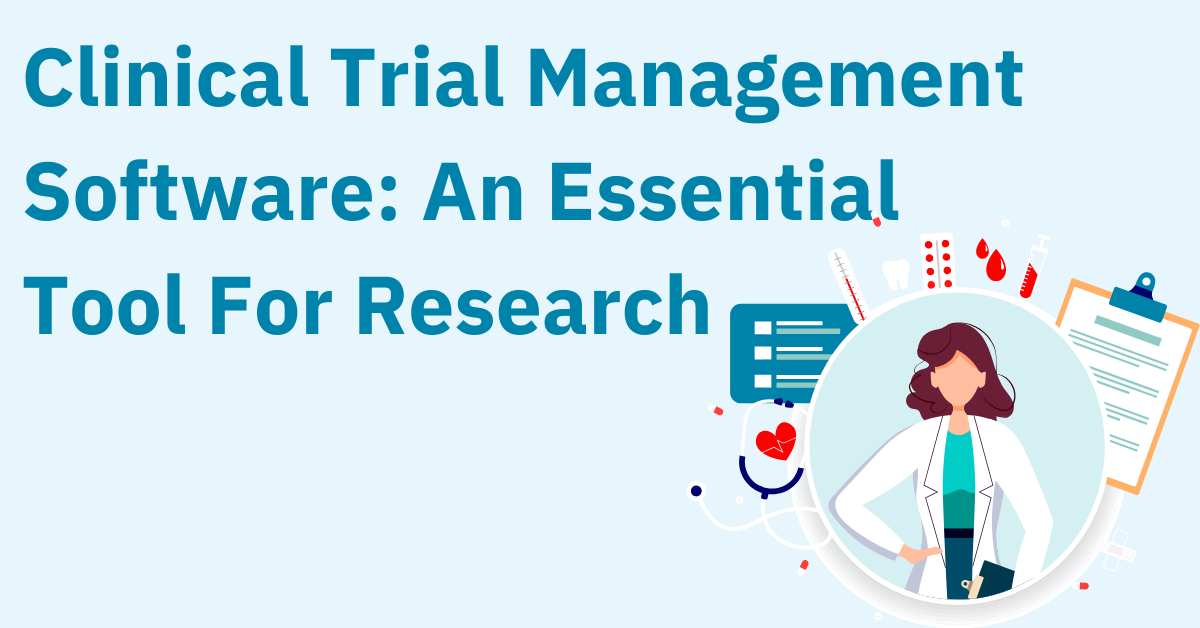Clinical Trial Management Software: An Essential Tool For Research Institutions
Conducting clinical trials is a complex process that requires strict compliance with regulations and meticulous documentation. This makes reliable software indispensable. Clinical trial management software (CTMS) offers a solution to manage all aspects of clinical studies, from tracking patient data to ensuring regulatory compliance. For research institutions, streamlining processes while maintaining high standards of integrity is important. But what makes this software so valuable and how does it support researchers and sponsors in their studies?
Efficiency and Accuracy in Clinical Trials
One of the key benefits of using clinical trial management software is its ability to enhance efficiency. This software automates routine tasks such as scheduling, monitoring and reporting. Allowing the research team to focus more on the quality of the trial. It helps reduce human errors and ensures that data is captured consistently and accurately. By streamlining workflows, trials can be conducted faster without compromising the precision required in such studies.
Complete Control Over Study Data
Clinical trials generate vast amounts of data, from patient demographics to detailed study outcomes. Managing this information can be overwhelming without the right tools. Clinical trial management software provides a centralized platform to manage all this data, ensuring that researchers have access to the latest and most accurate information at all times. This makes it easier to track the progress of a study and to make quick decisions based on real-time data.
Regulatory Compliance
One of the biggest challenges in clinical trials is adhering to strict regulations, such as Good Clinical Practice (GCP) and guidelines from regulatory agencies like the FDA. Clinical trial management software helps researchers and sponsors comply with these requirements by offering built-in features that ensure all documents are correctly managed and audited. This reduces the risk of errors that could lead to delays or rejections by regulatory bodies.
Improved Communication and Collaboration
Clinical trials often require collaboration across multiple departments and teams. Both within an organization and with external partners. Clinical trial management software enables seamless communication and collaboration among all stakeholders. It offers shared dashboards and reporting tools that keep everyone informed of the trial’s progress and important updates. This transparency is key to ensuring that all team members are well-informed and that deadlines are met.
Cost Savings and Resource Management
Clinical trials can be expensive and time-consuming. Clinical trial management software helps optimize the allocation of resources, both financially and in terms of time. By automating processes and increasing efficiency, costs can be significantly reduced. Additionally, the software offers tools to track budgets and monitor the allocation of personnel and other resources. This ensures that the trial remains within budget and that resources are used efficiently.
The Future of Clinical Trial Management Software
The future of clinical trial management software is promising. Emerging technologies like artificial intelligence (AI) and machine learning (ML) are increasingly being integrated into these systems to provide deeper insights and perform predictive analyses. This allows researchers to identify trends and make data-driven decisions, leading to faster and more accurate results. Additionally, cloud-based solutions improve accessibility and collaboration, regardless of where team members are located.
Research institutions looking to enhance their processes can significantly benefit from adopting clinical trial management software. This streamlines workflows, improves data accuracy and ensures compliance with regulatory standards.

















Post Comments